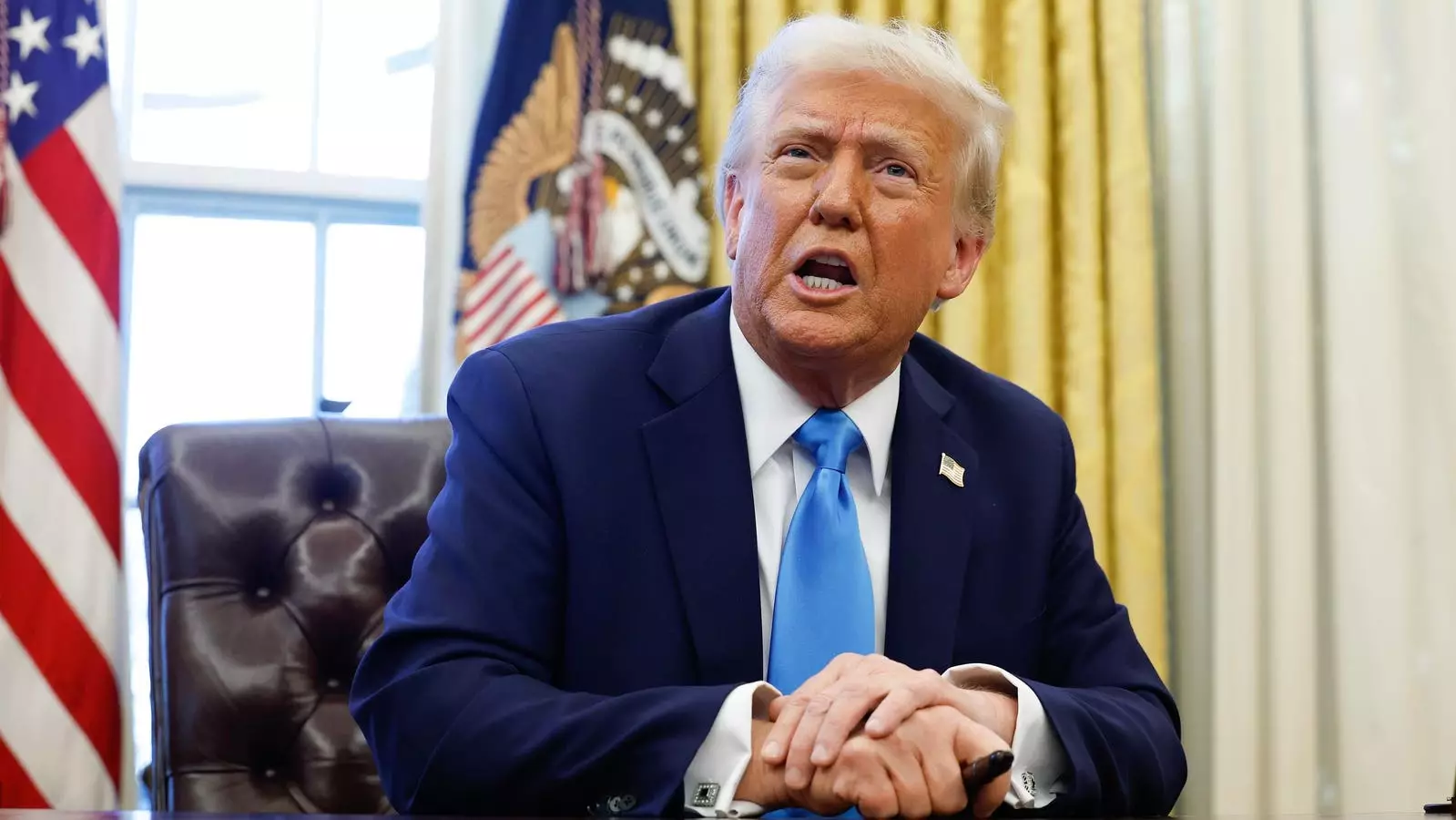The political landscape in the United States has shifted dramatically in recent weeks as the Trump-Vance Administration embarks on a series of controversial policy changes affecting global humanitarian aid, immigration, and public health. These developments represent more than mere adjustments in governance; they are likely to lead to significant ramifications for vulnerable populations both domestically and internationally. Below, we delve into the primary areas of concern emerging from the administration’s actions.
Amidst a growing chorus of concerns regarding inflation, the policies introduced by the Trump-Vance Administration appear counterproductive. While the administration’s discourse highlighted plans to combat inflation, a closer examination reveals that proposed tariffs and trade restrictions could inadvertently escalate food prices. A recent study conducted by economists indicates that existing trade disputes with key partners like Canada and China will likely widen the financial burden on American families already grappling with food insecurity. The ramifications of such price hikes will ripple through households, disproportionately affecting those with low incomes who spend a larger percentage of their earnings on essential necessities like food.
With food prices on the rise, the most vulnerable groups are poised to be the hardest hit. Families faced with tight budgets may find themselves navigating difficult choices between necessities, potentially leading to increased rates of malnutrition and health disparities within communities. The potential emergence of food deserts due to the lack of affordable options might become a significant public health crisis in the near future.
One of the most alarming directives under the new administration is the freezing of foreign aid, particularly through the U.S. Agency for International Development (USAID). This agency has historically played a critical role in providing essential support across more than 65 nations, bridging gaps in healthcare, food security, and capacity-building initiatives. Reports indicate that nearly all USAID staff have been recalled to the United States amid plans for massive layoffs, which not only endanger the livelihoods of countless families but also place millions at risk of losing vital humanitarian services.
The abrupt halt of aid can exacerbate existing global crises, such as food shortages and public health emergencies, potentially destabilizing regions dependent on U.S. support. The humanitarian perspective cannot be overlooked; for many communities, USAID programs are lifelines that empower them to overcome poverty and the aftermath of conflicts or disasters. The withdrawal of aid sends a strong message not only to those in need but also to the broader international community about the U.S. commitment to global humanitarian efforts.
The Trump-Vance Administration’s strategy on immigration could have crippling effects on one of the U.S. economy’s most vital sectors: agriculture. A significant portion of the agricultural workforce is made up of immigrants, many of whom work under challenging conditions to ensure that the nation’s food supply chain remains intact. The administration’s aggressive stance on deportation, including raids by U.S. Immigration and Customs Enforcement (ICE), threatens to leave farms without essential labor, further complicating already fragile supply chains.
Data from the George W. Bush Institute indicates that not only do immigrants contribute approximately one-sixth of the tax revenue but their absence could lead to labor shortages and increased food prices. As farms struggle to maintain productivity, the pivot to an H-2 visa program laden with allegations of human rights abuses raises questions about the future of farm labor and consumer choices. Without adequate protections and ethical labor standards, the agricultural system may see a shift towards an exploitative model that undermines both workers and consumers.
An equally disconcerting element of the new administration’s agenda is disengagement from crucial global health initiatives. The decision to withdraw from the World Health Organization (WHO) and the Paris Agreement on Climate Change signals a retreat from cooperative global engagement in public health and climate matters. This withdrawal is indicative of a troubling trend that prioritizes an inward-looking approach rather than global solidarity and responsibility. The cuts to funding that supported innovative agricultural practices and climate-smart commodities not only undermine the environment but could also jeopardize food security in the U.S. and beyond.
The early days of the Trump-Vance Administration herald a significant transformation in governance with likely adverse effects on humanitarian aid, economic stability, and inclusive immigration policies. As these changes unfold, it remains critical for citizens and communities to stay informed and advocate for policies that prioritize equity, compassion, and responsibility—both at home and around the world. These challenges are not just political maneuvers; they are central to the lives of millions who depend on a system that has, until now, offered them hope and support.

